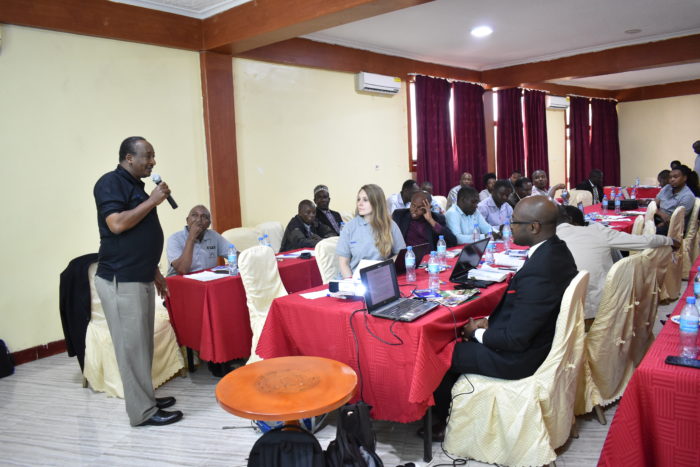
Talking about legal and regulatory reform doesn’t turn heads the way that groundbreaking mobile technologies and innovative public private partnerships for more resilient communities do, but it is equally important. And it can set the stage for such partnerships and technology adoption. In some countries, local rules and the way they are enforced are some of the biggest barriers for communities to implement cooperative solutions.
Global organizations such as the International Cooperative Alliance and International Labor Organization recognize this challenge. Through the US Agency for International Development (USAID) Cooperative Development Program (CDP), the National Cooperative Business Association CLUSA International (NCBA CLUSA) promotes more enabling legal and regulatory frameworks for cooperatives as part of its Creating an Environment for Cooperative Expansion (CECE) project.
Cooperatives are a commonly misunderstood business model, so it is worth clarifying. A cooperative is a voluntary association of people engaged in a business that is owned by them and serves their needs. In other words, cooperatives are member-owned and member-controlled businesses that benefit their members and communities. This means everything from agricultural cooperatives that connect smallholder farmers to markets, to savings and credit cooperatives (SACCOs) that provide innovative financial services and products to their members at affordable rates, to worker cooperatives owned and led by entrepreneurial groups of people who understand they are stronger together.
The CECE project works in Guatemala, Peru, Kenya, Tanzania and Madagascar, all countries where cooperative law reform processes are ongoing. NCBA CLUSA brought together international cooperative experts and local lawyers to identify the enabling and disabling elements for cooperative development in each country’s law. These cooperative law assessments were conducted using the Cooperative Law and Regulatory Initiative (CLARITY) tool, which serves to start the conversation with local cooperative stakeholders about the need to improve legislation in a more focused and productive manner.
In Guatemala, over 70 cooperative stakeholders came together in October 2019 to discuss the CLARITY cooperative law analysis. The workshop served to share key findings and foster ownership and unity within the cooperative sector to play a bigger role in the reform process. “The National Institute of Cooperatives (INACOP) has made enormous progress and, despite financial obstacles, has managed to implement important modernization processes in support of the cooperative sector,” said Humberto Maldonado, chair of the INACOP Board of Directors. “The CLARITY analysis…will contribute to the modernization process required by the sector and will be of great support for the revision of a law more than 40 years old.”
In Tanzania, the government is poised to pass a revised cooperative law that incorporates approximately 80 percent of the recommendations outlined in the CLARITY cooperative law analysis completed last year. After initial stakeholder meetings were hosted by the CECE project and local partner Rural Urban Development Initiatives (RUDI) to share the methodology and findings, key cooperative sector actors in Tanzania have rallied around the CLARITY analysis as an important tool for influencing law revisions.
Why does cooperative law reform matter? Strong cooperatives have proven to be effective local partners in development, ready to innovate and tackle the challenges their members face. Globally, there are approximately 300 million cooperatives representing more than 1 billion members. Additionally, 10 percent of the world’s employed population are employed by cooperatives. As an inherently inclusive and democratic business model, cooperatives have enormous potential in creating more resilient communities where all people — including women, youth and the most vulnerable—have opportunities to improve their livelihoods.
When countries take the lead in improving legal and regulatory frameworks for cooperatives, they create space for these people-centered businesses to grow and thrive and pave their way towards self-reliance.


